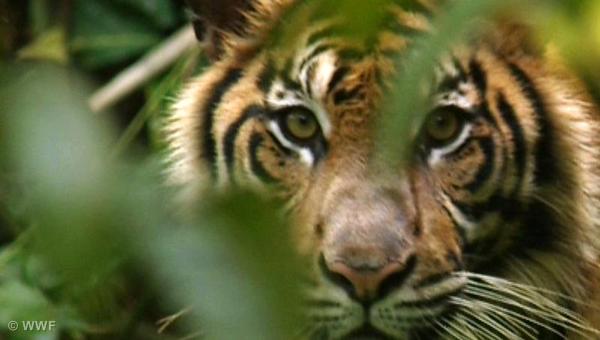What do a Barbie, Xerox and National Geographic have in common? Well, after years of hard work, this should finally become clear. Much of the Indonesian rainforest has been chopped down by pulp and paper supplier Asia Pulp & Paper (APP) to make everything from toy packaging to office supplies to glossy magazines. When youve helped us win campaigns against brands like Mattel, its sent a signal to their supplier, APP, that were not willing to buy rainforest destruction. So today, after pressure from you and the businesses that buy from them, APP has announced a Forest Conservation Policy aimed at ending its involvement in deforestation. If APP actually comes good on what it’s promised, this is great news for the Indonesian rainforest.Read below to hear from Greenpeace’s forest campaigner in Indonesia about this remarkable and unprecedented win for the forests.
Today was a day I have at times feared might never come, but Ive just emerged from a packed press conference in Jakarta for the launch of Asia Pulp & Papers new Forest Conservation Policy aimed to end its involvement in deforestation.
Ive personally invested, along with many of my colleagues, endless hours into our campaign to persuade APP to make this step. After a great deal of blood, toil, sweat and tears, today the company did just that announcing an immediate moratorium on further forest clearance and a range of measures to stop its role in deforestation.
We could not have got to this point without many of you, around the world, who helped to persuade dozens of well-known brands to suspend contracts with APP.
The decisions by these companies led to more pressure being applied on APP. This sent the message to the company that simply spending more on public relations efforts was not going to change its reputation or bring back lost customers.
Other NGOs working on both environmental and social issues have also played a critical role in bringing about this important change, through their own campaigns both here in Indonesia and abroad.
Following the recent meetings we’ve had with APP, the companys new commitment makes me breathe a little more easily today. But this really is just the beginning of change for a company that has heavily relied on deforestation for far too long.
We will be watching very carefully to ensure that APP is delivering where it really matters on the ground, in the rainforests. Our advice to former customers of APP reflects that: policy commitments will not be enough it’s only through their delivery that APP can start to win back the business that it has lost in recent years.
In the last few days there have been two questions that have dominated most of my discussions around these commitments why now and what is different this time?
Why now? Its clear that the commercial pressures and reputational impact of losing major customers around the world is very important. The commitments introduced by APP’s sister company Golden Agri Resources needed are almost certainly a factor too.
When GAR started to implement strong no deforestation commitments, the company started to win back its customers and mend its own damaged reputation.
But there is another factor that we need to keep in mind and its one that means that we need to keep todays decision in perspective.
The reality is that APP has already cleared the majority of forests in its supply chain to make way for plantations. A lot of forest has been lost for that expansion, tens of thousands of hectares per year in recent years.
So while I am hopeful that things are changing at APP and am happy about what this means in future for Indonesias rainforests, we cannot forget that these are changes that ought to have come many years ago.
So whats different this time? APP knows it has an awful lot of work to do to demonstrate that things are truly different now.
Teguh Wijaya, the chairman of the company, spoke at todays event and endorsed the new company policies, which is an important distinction from previous commitments. The company is also working with several external organisations, including The Forest Trust (http://www.tft-forests.org/) and Asia Pacific Consulting (http://www.apcs-pmw.com/).
It all boils down to APP putting policy into practice.
No one is under any illusion that making commitments is going to be enough. APP will need some time and space to show that its new policies are being implemented.
We very much hope that the company will use this time to also work with other stakeholders to find solutions which both protect forests for the long term and which can help resolve social conflicts.
Greenpeace has, for now, taken the decision to suspend its campaign against APP. We will be reviewing progress by the company and reviewing this decision at regular intervals.
If APP achieves its no deforestation goals, its a really significant milestone for our campaign to save Indonesias forests. It sends an important challenge to others in the pulp industry, such as APRIL, who we have written to today (add link to letter coming later).
I am cautiously optimistic about these changes they are critical if we are to succeed in ending deforestation in Indonesia and beyond.
Bustar Maitar is Head of Greenpeace’s Forest Campaign in Indonesia






